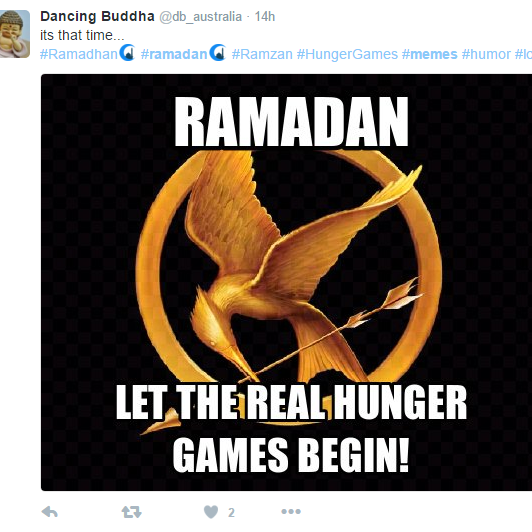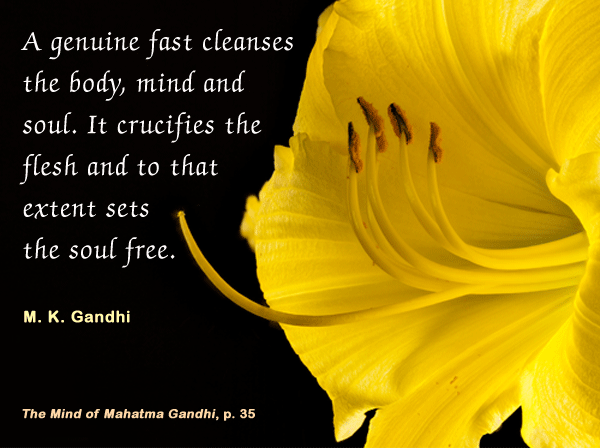Ramadan began yesterday. …
And I realized that except for my years in Kazakhstan where one colleague observed the month-long fast, I don’t know much about this holiday celebrated the world over by 1.6 billion Muslims (7 million of them here in the US).

Yes. For most of us non-Muslims, Ramadan means simply, “that fasting month.” I was curious what else it meant. What does it symbolize? When did it start? What actually does one do during Ramadan?
Fasting is a part of all major religions of the world.
Buddhists, Christians, Hindus, Muslims, and Jews, adherents of all the world’s religions actually, include fasting to some extent. Here’s a handy chart I found on the internet (beliefnet.com/Faiths) that presents the many religions with When and Why they fast. I urge you to take a look. The chart was a bit too challenging for me to get entered into this post.
But we are looking specifically at Ramadan, the month-long Muslim fast that commemorates the month in which it is believed Allah first revealed the Quran to Mohammed .
The fact that it happened during the 9th lunar month means that each year, Ramadan begins 11 days earlier than the year before.
It takes 33 years for the holiday to cycle through the Julian (solar) calendar, which is 11 days longer.
And this year, Ramadan falls over the summer solstice — the longest days of the year.
That’s the why and the when. As I researched the what and the how, I discovered one fact that jumped out at me: non-Muslims are free to participate in Ramadan.
Nikhil Bumb gave a compelling argument in support of fasting in the Huffington Post a few years ago, “Why Even the Non-Religious Should Try Religious Fasting,” and I was intrigued. There seems to be valuable health benefits to fasting. I offer the link because it’s such a well-written article. She is a Jain and writes from their fasting perspective.
Certainly while I was in Kazakhstan, I attended many a Muslim iftar (evening meal, served after sundown). They were generous affairs, always well attended. Still, they seemed no different than any of numerous feasts I would attend while there. Lots of food, good company, laughter, toasts.
I don’t think I came away with any more understanding of what it means to celebrate Ramadan.
So, still I asked, “What is Ramadan? And how might I observe it?”
Why not fast?
I’m a kinetic learner. Experience counts big time for me. I use all my senses in gathering data, not just hearing it or seeing it. Doing it; that’s how I learn best.

Mahatma Gandhi, a Hindu and probably the world’s most famous faster, has quite a few great quotes on the benefits of fasting. His attitude seemed more symbolically spiritual than physical. That didn’t bother me.
As I read more, I discovered the spiritual benefits attributed to the act of fasting, in general, centered on the notions of purification, penance, humility, and community building.
Purification is big in Islam. Not only cleansing the body of toxins (a physical benefit), purification involves “stripping away the outer layers of the self until you get to a more simple and pure state. By removing some of the draws of the physical world, one can return to a more focused, spiritual life.”
I’m in that camp that holds we are all spiritual beings in our core, here on earth having a human experience. I’m comfortable with the focus of my spiritual life; but OK. I’m game for a more focused, spiritual life.
The penance aspect of fasting is a contribution from the Christian religions and held no particular appeal. I was raised Christian, some of its values are still deeply embedded in me. But doing penance by fasting was not helping motivate me. Still, three out of the four would be enough.
I’m a big fan of humility. “Fasting helps remind us of the hardships faced by the less fortunate and can encourage us to better appreciate what we have, including regular access to food,” wrote an article in the Huffington Post with no byline. “Many Muslims go beyond the physical ritual of fasting and attempt to purge themselves of impure thoughts and motivations such as anger, cursing, and greed.” Who can’t use a bit more humility in their lives?
Perhaps that is why charity is a large part of the Ramadan observance. During this month, various Muslim communities work together to raise money for the poor, donate clothes and food, and hold evening meals for those less fortunate. The fast emphasizes self-sacrifice and using the experience of hunger to grow in empathy with the hungry.” That too sounds enlightening.
Which brings me to the final non-physical benefit of fasting: community building. Those who fast are united in a practice that sets them apart from non-fasters.
I love community. I love feeling connected to a new group. Those of you who have met me may acknowledge that. So, I wondered, why not? Why not participate in the Ramadan fast. Why not abstain from eating or drinking from sunrise to sunset for the next month? (This year, Ramadan is officially over on July 5.)
I’ve been taking notes since 4:30 Tuesday morning when my alarm went off so I’d be sure to have time for breakfast before the official sunrise.
Drop in next week to find out how Week One went.
For further information on the Islamic practice of Ramadan, here is a link I found.
Too bad I didn’t find this one a week or so ago. I would have been a bit better prepared.
How about you? Have you ever fasted? Why or why not?
Carolyn
I don’t find missing food a problem but the lack of water is hard. Short fasts are something one comes across in daily life these days, such as before certain medical tests. I have fasted and enjoyed the experience but then I also felt better after giving blood – as if getting rid of “used blood” and creating new invigorated me.
A difficult side effect of Ramadan, especially in summer months, was working with my Muslim members of staff who needed to change their hours of work if possible in order to get home in order to break fast. They were very good as providing cover at work and sharing the days out. Never heard anyone complain – even those who weren’t particularly religious followed Ramadan strictly in terms of the fast.
Janet Givens
Hello Carolyn, I’m interested in your reaction to donating blood. And I particularly love your explanation. Thanks for starting us off.
Marian Beaman
Thank you for using all of your senses to share knowledge and insight here. My own fasting usually precedes medical tests. Fasting as spiritual practice is admirable, Janet. I anticipate your report of Week One. 🙂
Janet Givens
Seeing, hearing, touching, smelling, and tasting. I’m on it. 🙂 Thanks for the reminder.
Kathleen Pooler
Well, this is an ambitious undertaking, Janet! My fasting involves medical testing and some limited fasting during Lent. I can see where a true fast can force one into a more spiritual realm. I look forward to your reports.
Janet Givens
I’m finding I am thinking of things I wouldn’t ordinarily think about. I’m glad I’m doing it. At least at this particular moment, I’m glad. 🙂
Ian Mathie
Whilst working in the Middle East installing a piped irrigation system, I ran into problems when Ramadan approached as all the labourers, about forty of them, maintained that we couldn’t work as hard during the Ramadan fast, and they could only do about five hours a day. We had a deadline to meet and a lot of work to be done so I suggested that I would move and live on the site for the duration of Ramadan, observing all the strictures and even taking my turn cooking the meal at night if everyone else would work the same hours I did. They agreed unanimously.
Throughout Ramadan we worked straight through from sun up to sunset, neither eating nor drinking, nor sitting in the shade. It was hard physical work too, in temperatures averaging 105 degrees, with dust everywhere (deserts tend to be dusty!). We not only got the job done ahead of time, all the labourers earned a good bonus for their exemplary work when the Sheikh came out ans saw what we’d achieved.
Me? I lost 18 lbs, got super fit (I was fit enough beforehand) and had the satisfaction of knowing we’d done a good job. I also made forty odd friends among whom we shared a lot of laughter and nightly chicken curry.
Its not just the sacrifice, it’s the shared experience, although I didn’t notice a great deal of spiritual gain from it.
Janet Givens
I imagine you were a lot younger then, huh? I’m finding laundry wins out over logging, at least for these two days. But I commend you on your willingness to participate with them. I think the sense of community is the one that beckons to me the most. And up here on my little mountain, there is little opportunity. Thank goodness for internet.
Dave
What a great read and interesting approach to understanding others beliefs and practices. Like the others here I am eager to hear how it goes and wondering what other dietary or other restrictions there are during Ramadan.
Janet Givens
All shall be revealed, in good time Dave. 🙂
Thanks for popping in.
Skywalker Payne
I was a practicing Muslim, later a Sufi for several years and participated in Ramadan a few times. I always found it a difficult practice because I was not in community. But, I had done other fasts before that did not limit water. Also, as a young woman, you were exempted during your menses. I did experience some spiritual benefits. There is a special night during Ramadan called Iftar and I wrote a poem about it. I’ll share later.
Janet Givens
Hello, Skywalker. And welcome. I’m so glad you added your voice here. Travelers are also exempt, which I have to admit I knew before I began. (I leave today for Ohio). I look forward to hearing more from you.
Ian Mathie
Whilst working in the UAE it was common for me to observe a mass exodus from town at about midday during Ramadan. Many people would drive 35 miles into the desert and then stop for a picnic and to drink copious amounts of water before returning and observing their fast for the rest of the day. This exploitation of the travellers’ dispensation was more than commonplace, yet those doing it were otherwise good and devout muslims. It suggests that even when the sacrifice is more symbolic than actual, some level of conformity is still demanded.
Merril Smith
It’s not something I’ve done (and honestly, no wish to do). I suppose if you are part of a community, it’s different. Good luck with your month!
I heard this story yesterday: http://www.npr.org/2016/06/08/481206910/curious-george-learns-how-american-muslims-celebrate-ramadan
Janet Givens
A great story, Merril. Thanks for sharing it. I think I’ll use the NPR audio in next week’s post. And, as you’ll see from my comment to Skywalker, this was not a month for me. It was two days. Enough for some new ideas. Eager to share next week.
My Ramadan Fast Follow-Up and other concerns – Janet Givens
[…] My Ramadan […]
FINDING MY TOPIC – Janet Givens
[…] of understanding cultural differences. Those of you who have been with me awhile might remember My Ramadan post of two years ago, where I took on the Ramadan fast. To stay with my menu metaphor, […]